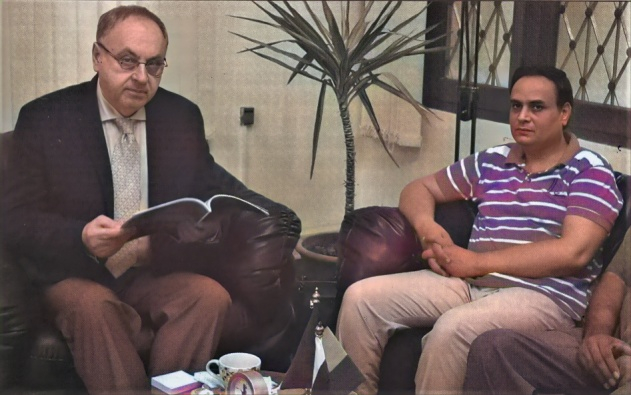Q. Romania has been declared as one of the emerging economy in the EU by IMF. What are the chances of further strengthening of socio-economic ties between the Romania and Pakistan?
Ans. Romania is indeed one of the emerging economies and this reality is a desired and natural development. At the same time, it answers only in part our necessities and aspirations since we aim at much more than that. Nowadays, there is a strong need to strengthen the international economic cooperation and, simultaneously to reconstruct the traditional relationship with old friends, Pakistan among them. We expect confidently and with much hope that the economic ties between Romania and Pakistan will deepen and diversify in the years ahead. The real potential of the two countries is huge and we should take full benefit of the already identified areas of complementarity of the two economies.
Besides the bilateral cooperation through mutual investments, we are also interested to find options of working together on the third markets where, Romania and Pakistan might conjugate their resources and energies in the most constructive way. This is unfortunately a domain which had been somehow neglected lately because of focusing in the internal reconstruction of economy. Romania and Pakistan do have common areas of interest both geographically (Near East, Northern Africa etc.) and thematically (the common interest of developing sectors as IT and communications, civil constructions and infrastructure, agriculture etc.).
Romania’s relations with Pakistan are based on long standing cooperation of mutual trust and it is developing in the framework of dynamic, result-oriented dialogue. Pakistan is an important trading partner and both sides are interested to enhance the bilateral trade volume which is currently far below the potential of our economies. Our main priority is to increase and diversify the commercial exchanges between Romania and Pakistan, in a balanced manner for exports and imports.
Since my recent assignment as Ambassador of Romania to Pakistan, I noted with satisfaction the constant interest of local chambers of commerce and industries to enter into business partnership with Romanian companies. At their invitations the Embassy discussed opportunities of cooperation in Karachi, Lahore, Faisalabad, Gujrat, Gujranwala, Sialkot, etc.
Q. 85 percent of Romanian economy is in the hands of the private sector. What are the chances of mutual cooperation in services sectors?
Ans. Once the process of Romania’s economy adaptation to the EU common market as well as the liberalization of the market is finalized, our economy is entering into the phase of configuring its own new identity. This very elaborated and complex process comes as a result of the intellectual potential, the access to natural resources and infrastructures components as well as our requirements for economic and social security. The present day geopolitical realities and those we envisage for the future are also key vectors to be taken into account for adequately shaping the Romania’s economy new identity. Romania invests substantially in the private sector, mainly in the fields which are in consonance with our immediate needs such as IT, banking & financing, light industry etc., as well as in the high technology and renewable energy. Despite the geographical distance we have many complementarities with the economy of Pakistan. Romania is a new starter as far as investments in the foreign markets are concerned, but having a real important dynamism of exports it is interested to see the sectorial progress made by the main Pakistani economic vectors. The bilateral juridical documents we have already concluded and the economic missions in the two countries whose number and quality have increased in the last couple of years call for optimism in assessing the future perspectives of our cooperation.
Q. What is the secret of success of your national policy of job generation? What lessons should Pakistan learn from this?
Ans. It goes without saying that the state’s implication in creating jobs is extremely important because it is one of the main vectors of sustainable economic growth. Romania is consistently acting for covering a substantial part of the expenses for creating a new job and to support out entrepreneurship.
Jobs generation is a lengthy process which requires a rigorous pacification and it is a priority for governments irrespective of the political spectrum in power. The government of Romania approved for the year 2017 the program “State Aid for Financing of Investments Projects” with a 25 million euros budget. The program is addressed to all companies be them small, medium or large, and covers up to 50% of the salaries and the taxes for the new employees for a two-year period. To be eligible for the program, the companies must create at least 10 jobs and 3 jobs for underprivileged employees.
According to the 2017 state budget, the Ministry for Business Environment Commerce & Entrepreneurship has developed new projects and programs for supporting the small & medium companies attracting hundreds to millions of euros.
Our membership to European Union facilitates the policy of job creation by using the European funds attracted trough National Program of Entrepreneurship Development and Professional Romania Program.
We are willing to develop dialogue with Pakistani partners on topics such as good practices in jobs creation regarding the government level policies and through direct cooperation between the administrative-territorial units involved in twining programs.
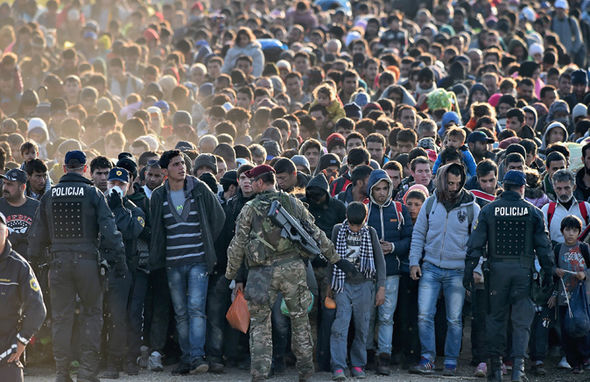
Q. Migrants are using Romania as gateway into Western Europe. What is the stance of your country on migration and refugees crisis?
Ans. Romania fully backs the European positions in as far as the problem of migration is concerned. A comprehensive approach of migration is critical for seeking realistic solution for this major crisis and identifying the root causes of the phenomenon is absolutely necessary. We are a part of European endeavors to deal with the migration crisis by participating in the relocating process of the migrants from Italy and Greece as well as contributing significantly to the relevant European agencies. The European Borders and Coast Guard “European Asylum Support Office” contributing to the implementation of the EU-Turkey agreement and strengthening the cooperation with the migrants’ states of origin and transit is yet another way of Romania working for easing the migrant crisis effects.
The EU agenda for migration underlines the need of a new comprehensive approach that allows implementing all the policies and instruments available at the European level, efficiently combining foreign and domestic politics. At the same time, we believe that a durable solution for the migration crisis requires a major change of the European Union policies as to strengthening the frontier, fair protections and a system capable of anticipating the risks.
In 2016 in Romania a number of 1855 applicants required asylum, the majority of whom being from Syria (865) and Iraq (460). Comparing to the huge number of migrants heading to Western Europe using other routes, we can draw the conclusion that Romania is neither a major destination nor a transit zone for the people seeking asylum in the West of Europe.
Q. What is Romania’s experience at UN and its different subsidiaries?
Ans. During over 60 years of belonging to the United Nations Organization, Romania has affirmed its vocation of a contributor to the prevention and peacefully settlements of conflicts, through actions and political and diplomatic demarches regarding the most diverse domains starting with human rights to the nonproliferation and crisis management, modernization of the international law as well as direct involvement in post-conflict stability projects.
Within the 2004-2005 non-permanent member of the Security Council’s mandate, Romania contributed to the enforcement of the UNO Charter regarding regional organizations, initiating a resolution called “Cooperation between UNO and regional organizations in assuring international peace and security”. The above mentioned resolution was adopted on 17th of October 2005 and has a double significance: 1) it is the first ever Romanian resolution adopted by the UNO Security Council and 2) it is the first documents in the history of this organization on the issue of UNO cooperation with regional organizations.
The diversity of the interest topics for Romania is illustrated by activities such as hosting the Summit for Environment and Sustainable Development in the Carpathian Danube region (2001) and Pan European Conference in the preparation of the UNO Summit on the IT society (2002).
Romania is hosting international hubs of political and strategic importance: 1/Centers of Excellence for Protection and Security (inaugurated in 2010) where the participants to the political and peace operations of the UNO are trained; 2/The Emergency Transit Center for Refugees in Timisoara (opened in 2008).
As a development aid donor since 2007, Romania is involved in a new way of cooperation trough the partnership with a number of UNO institutions in this field.
Q. Romania is a peace loving country. What are your achievements in international peacekeeping missions/ operations?
Ans. Romania has become a true security provider and this reality is illustrated by the last 27 years record of Romania’s participating not only in NATO missions and activities but in the first place, to a large number of peace keeping operations all over the world. For example, on 30th of September 2016, Romania was present in ten UNO peace keeping operations (out of total of 16), 69th position out of the total 122 contributing states, with a total of 98 military, police and gendarmes.
I would like to underline that we pay great attention and emphasize on capitalization of field experience to create political and diplomatic instruments capable of handling the potential conflict at the early stage and diminish the need to deploy peace keeping forces.
Q. It is difficult to understand Romanian foreign plan in the context of transatlantic divergences? Having said that, what are the salient features of your country’s foreign policy?
Ans. The foreign policy profile of Romania is articulated and focused to the need to assure a balance between the multilateral and bilateral components. I underline that Romania has introduced in the international policy language the concept of “parliamentarian diplomacy” which has efficiency in opening channels of communications in areas inaccessible for governmental factors; this has been proved practically and not only theoretically.
Enforcing the Strategic Partnership for XXI century with the USA agenda is one of the most important pillars of the foreign policy of Romania. Equally important is the consolidation of our membership in EU and NATO as well as other multilateral organizations (UNO, OSCE, ASEM etc.), to be able to contribute with adequate solutions to the coherent reactions the international community is required to have in the time of great challenges for the humanity.
Quite naturally our priorities go to the immediate vicinity. We act consequently that an important place in the EU policy to be accorded to the European vicinity, that the EU will give Moldova a clear European perspective and to support the European destiny of Ukraine, Georgia and Western Balkans.
Romania is extremely alert to the Romanian presence abroad. Diaspora is equally a factor of Romania identity overseas and a contributor to the development of our society.
Romania will actively continue its demarches for the observance of the free movement of labor forces according to the EU norms and principles. Bucharest is looking with much interest to the debates regarding the consolidation of European Monetary Union especially concerning the creation of the Banking Union and implementing balanced solutions to insure a fair treatment for the EU/MS non-members of the Euro-zone. Romania will exercise its first mandate of the European Union Council in 2019.
We will have extraordinary opportunities to play a role in stimulating the dialogue and cooperation with the global partners, among them particularly those from South Asia due to strategically importance and their relevant contribution to the international developments.
The consolidation of the NATO Eastern flank as well as managing the problematic situations in Northern Africa and Middle East are also of utmost importance for Romania.
Bucharest keeps Asia on the priority list in the view of the traditional ties as well as mutual needs of development. We have got the advantage of being a Gateway to the European market of the Asian economic, investments and energy flows and we would like to capitalize on this aspect as much as we can.
We are very concerned with the present conflict outbreaks, the consequences of terrorism escalation and extremist ideologies dissemination.
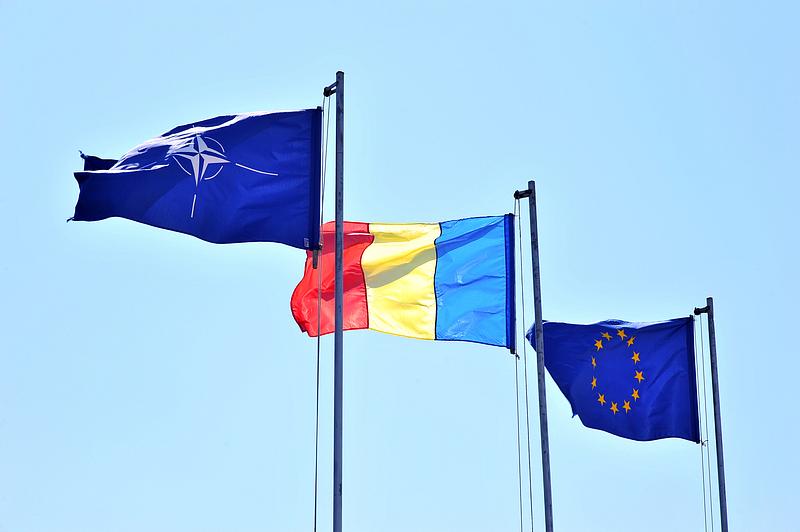
Q. Human survival has been endangered because of non-state actors i.e. climate change and terrorism. What are Romania’s policies towards these non-state actors?
Ans. The globalization of terrorism is an undeniable fact today, a threat to internal and international security and responsibility for reining in this phenomenon lies with the entire international community.
Under the circumstances of a tight interaction between terrorism and various forms of criminality (organized crime, money laundering, drug trafficking, arms trafficking and the illegal movement of nuclear, chemical, biological and other potentially destructive materials), Romania will further work to prevent and counter terrorism both at a national level and in the framework of international bodies (the EU, the UN, NATO, OSCE, CE), based on the existing legislation and on observance of human rights and fundamental freedoms.
At the national level, the action of preventing and countering terrorism is organized and conducted in a unitary manner, under Law no. 535/2004 on preventing and countering terrorism (currently in the process of being amended). The Supreme Council of National Defense adopted, in April 2002, the National Strategy on Preventing and Countering Terrorism, a document stipulating the following main objectives: identifying and permanently monitoring terrorist threats, protecting the national territory and the Romanian citizens, preventing terrorist cells from functioning in the territory of Romania, and participating in relevant international efforts.
In Romania, the activity of preventing and fighting terrorism is conducted in the unitary framework of the National System for Preventing and Countering Terrorism (NSPCT), which rallies public institutions and authorities having powers in this area. The Romanian Intelligence Service is the technical coordinator of NSPCT and the national authority in the field of countering terrorism. (http://www.sri.ro/categorii/23/antiterorism—contraterorism.html)
Romania maintains cooperation relations in the area of preventing and countering terrorism in the framework of international organizations (the EU, the UN, NATO, OSCE, the Council of Europe), as well as at a regional and bilateral level. Romania applies the provisions of the relevant UN and Council of Europe conventions, implements the EU objectives (the European Union Counter-Terrorism Strategy and Action Plan, the EU Strategy on combating terrorism financing, the Media Communication Strategy etc.), and participates in international initiatives in this field (the Proliferation Security Initiative, and the Global Initiative to Combat Nuclear Terrorism).
On a regional and bilateral level, Romania is promoting an active policy to ensure security and stability in South-Eastern Europe, the South Caucasus and the entire Danube and Black Sea region. This country has concluded over 50 bilateral cooperation agreements with European states and states on the American continent in the field of counter-terrorism, fighting organized crime and drug trafficking.
Greater attention will be given to the processes of radicalization, terrorism financing, proliferation of weapons of mass destruction, and information technology crime. Specific actions are to be undertaken on the basis of cooperation platforms established at an internal and international level between stakeholders (police, intelligence services, local and central authorities, academic community, the media).
Q. Do you have any strategy for further growth of bilateral relations between Romania and Pakistan?
Ans. We have, fortunately, a rich and complex agenda of bilateral relations between our two countries. The component of multilateral cooperation is extremely developed, Romania and Pakistan often meet on identical or complementary grounds of interests. I mention here and now, as an example, the mutual assistance the two countries grant each other within the United Nations Organization framework, emphasizing the support of Romania to Pakistan for the Security Council of the UNO/2011 as well as Pakistani support for Romania’s bid to become a non-permanent member of the Security Council of UN in 2019. The bilateral relationship is mature enough not to imply immediate supplementary incentive, but this reality does not exclude but recommends the development of political dialogue as a way to reconfirm the potential of cooperation. We have our priorities and so does the government in Islamabad and these priorities are heavily influenced by the geopolitical particularities of the geographical areas we are living in, but I know we do have also the resources to capitalize the quality of our dialogue so that to diversity the fields of common interests.
Q. Volumes of trade determine the potential and scope of bilateral relations. What are the volumes of trade? What steps must be initiated for further strengthening of economic integration and connectivity?
Ans. The bilateral volume of trade reached a peak in 2014, totaling 194,2 million of dollars out of which 167 million dollars were Romanian exports. In the following years there has been a substantial decrease, the year of 2016 recording a total of about 100 million dollars, 70% Romanian exports.
The Romanian structure of exports: oil, seeds, fruits, metallurgical products, machine and equipment, wood and wooden products, spare parts and component for means of transportation chemical products. Romania imports from Pakistan: textiles, animal products, leather, grains and vegetables, miscellaneous etc.
I have said before but I keep saying that I am not pleased with the current level of bilateral trade because it does not reflect by far the real potential of the two countries. Efforts must be made, and this is high on Embassy agenda, to identify new opportunities and fields for increasing the trade which should reach in a matter of one or two years at least half a billion of dollars in both ways.
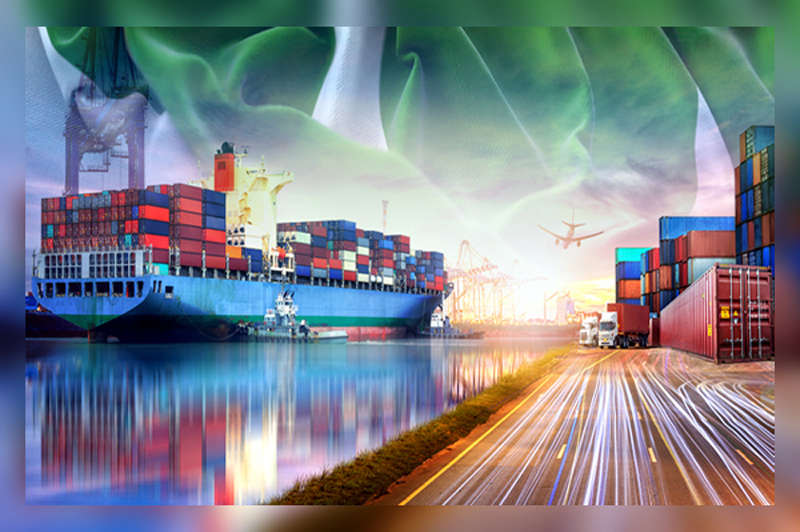
Q. Romania is the seventh largest European Union Market. It would provide support to Pakistani entrepreneurs to get the benefit of exporting their products to the European Union countries. Do you have any concrete plan for this kind of economic and industrial facilitation in your country?
Ans. Romania is indeed the seventh largest European Union Market and, because of obvious reasons, we will soon be the sixth. One great advantage is that we are a gate to European Market of the Asian economic, investment and energetic flows and we want to take advantage of this as much as we can. Of course, the economic agenda is fundamentally influenced by the dynamics of the demand and supply ratio, but this does not prevent us to facilitate the entrance to the European Market of our Pakistani partners though commodities, investments and other ways of cooperation. We are directly interested to maximize these advantages to offer the Pakistani investors a bridgehead to European markets by developing, in Romania, economic projects to be, at a later time, projected to different parts of the European continent. Manufacturing industry, freight and passengers transport, tourism, exploration and commerce of natural resources are only a few examples of areas the Pakistani investors can concentrate on to develop their presence in European markets.
Q. Joint venture may be useful for further strengthening of trade and commerce. Do we have any joint venture project in the pipeline?
Ans. I could not agree more when speaking about the major role played by joint ventures for the development of sound economic relationship. The joint ventures provide the ground not only for representation but also for the just management of the resources, in an atmosphere animated by the common will to reach joint objectives. It is probably the most efficient instrument in promoting economic ties between two countries. The potential of this sector is practically limitless and allows a flexible approach both from the perspective of business profile as well as the development on the third market. Within the framework of the total liberalization of Romanian economy, the government encourages and supports any initiative of the private sector to establish joint ventures with partners from abroad. I can say, with no shadow of doubt, that the entire economic spectrum in Romania is favorable to the idea of joint ventures in a large number of domains. We do have the necessary ingredients to make any Pakistani-Romanian initiative to establish a joint venture a true success story.
Q. Romania is renowned for its culture, history and heritage. What steps may be taken to showcase cultures of both countries?
Ans. The two countries have unique characteristics, specific for their own regions which combined, can provide maximum of visibility both for Romania and Pakistan. The culture and traditions of our countries made known by common actions in education, scientific cooperation creates the mutual opportunities to promote national values as bridges of strengthening the cooperation between the countries and continents.
Q. What is so special about youth policy of your country? How it may be utilized to enhance youth cooperation between the two countries?
Ans. The youth national strategy for 2015-2020 aims at a better coordination of the priorities in this field, starting from an action plan integrated in the Europe 2020 strategy. The national strategy is defined to “generate long term changes in the so called” labor and entrepreneurship such as: providing more jobs for the youth and prolonging the active life of the elders; reducing the rate of unemployment within the young generation as well as diminishing the number of young people not being in occupational, educational and training programmes; increasing the participation on the labor market of women and persons with vulnerabilities.
The strategy address specifically problems of the labor market like massive employment in the informal sector, self-employment in sustenance sectors, the job security, lack of access to the training programs etc.
Examples of punctual projects:
I. Discover Romania Beyond Dracula – young people from 25 countries (Pakistan included) have visited Romania for documentation and study.
II. AIESEC representatives have organized professional training sessions on topics like journalism, blogging, photo, editing and social media. The participants wrote articles in their personal pages as well for AIESEC Romania and produced video and radio programs for the audience in their own countries. We are looking forward for the participation of the Pakistani friends, too.
Q. Do we have any defence or military cooperation?
Ans. Both countries have interest for intensifying the bilateral military cooperation so, by 2013, an agreement for Defense Cooperation was signed.
The objective security requirements of our countries have triggered the attention and focus on cooperation in the conventional sector. The joint participation at the peace keeping missions, as well as the commitments of Islamabad and Bucharest individually, but also in the framework of international forums, to combat terrorism are equally reasons and incentives to cooperate in this field.
The two countries defense industries might cooperate in many fields from work share to investments in joint programs
Q. Pakistan and Romania celebrated 45 years of diplomatic relations and built oil refinery in Karachi and jointly built two cement plants in Lasbella and Kohat. What is the way forward in terms of infrastructural development/ cooperation, real estate industry and information and technology?
Ans. Romania and Pakistan established diplomatic relations in 1964, we have had uninterrupted diplomatic ties for over 50 years, during which my country has contributed to the development of Pakistani economy by building cement factories in Labella and Kohat, refineries in Karachi, tractor assembly factory near Islamabad and many other projects in various fields.
We have tradition, we have many success stories, we have all the necessary ingredients to reset our economic cooperation to a much higher level that it is right now. As the ambassador of Romania in Pakistan, I will put high on my agenda laying down the foundation for increasing the people to people contact, work system so that our expertise in the fields like construction, infrastructure, insurance, banking and finance, MSE etc will be transferred to our Pakistani partners. We are going to encourage Romanian businessmen to invest in Pakistan, we will support the process of training young Pakistani in Romania.
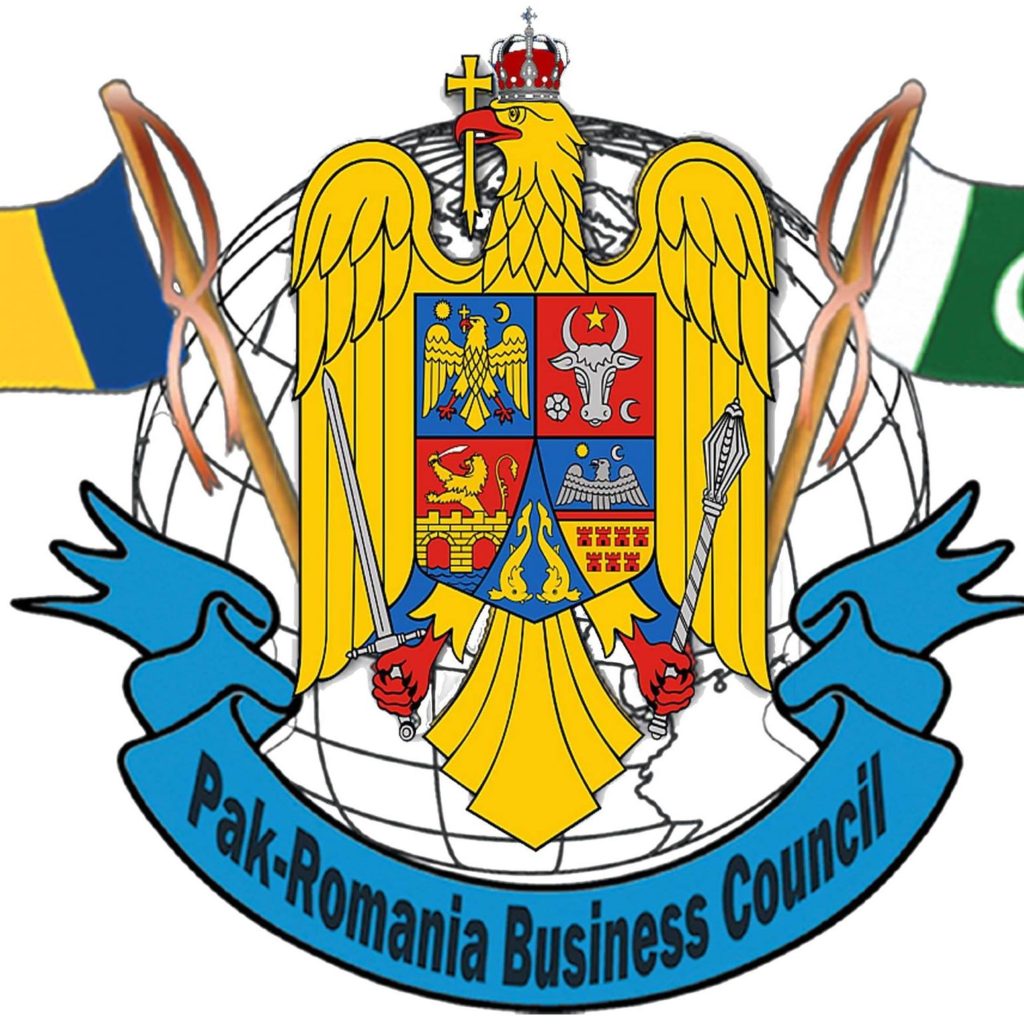
Q. What is the utility and benefit of Pakistan Romania Business Council?
Ans. PRBC is an important component of the common strategy of developing the economic relations between the two countries. The council has an important role in promoting the interest of commerce and Pakistani investments in the emergent market of Romania. It is also important for supporting the measures to improve the conditions for bilateral trade and investments.
To summarize: the PRBC main missions are:
I. A better understanding by the Romanian side of the business climate in Pakistan;
II. A deeper understanding of the perspective of the Pakistani business environment toward the prospects of investing in the state and private sector in Romania;
III. Promoting the legal aspects which affect in one way or another the capacity of Pakistani companies to invest or to do transactions in Romania;
IV. PRBC cooperates with other entities which support the development of Romania-Pakistan economic relations.
The activity of PRBC in carried out though working groups which focus on political priorities established by the council. In some situations, these groups are counseled by the special representatives of the companies which are members of the PRBC. The Council conducts a series of programs in both countries to disseminate and promote relevant developments in Romania.
Q. What in your opinion is so special about Pakistani culture and heritage?
Ans. Pakistan is the cradle of some of the oldest and richest culture and history in the world. The Pakistani people should be proud of thousands and thousands of years full of significant historical and cultural events. One cannot emphasize all the special attributes of Pakistani culture because these are way too many. Nevertheless, I cannot but highlight one aspect that marked me personally – six cultural objectives in Pakistan are currently in the UNESCO World Heritage: Archaeological ruins in Moenjo-daro; Takht-i-Bahi, Buddhist ruins and Sahr-i-Bahlol vestiges; the ancient city of Taxila; the Fort and the Shalamar gardens in Lahore; historical monuments in Thatta; the Rohtas Fort. The historical sites such as Taxila, Mohenjo-daro or Thatta (its necropolis are among the biggest in the world) are worldwide known and appreciated.
I allow myself to mention that the cultural bridge between our two countries where we can start from, are metaphorically mirrored in the poems of the former Pakistani ambassador in Romania, H.E. Mr. Sanaullah. The bare fact that Mr. Ambassador found his inspiration in Romanian land and published his volume of poetry in my country, says a lot about what we share together. We Romanians believe that Pakistan is a fascinating country in many regards, especially culturally and from the perspective of historical values. It is an extremely friendly country, with very competent and amicably people.
Q. What is your message to people of Pakistan?
Ans. As a message to your esteemed readers, from where I stand, I reiterate Romania’s support to further developing the relations between EU and Pakistan. I believe that the EU-Pakistan strategic dialogue will consolidate the current partnership aimed at preventing instability, extremism and people radicalization. Romania, in her double capacity, as a member of EU and NATO is supporting the enhancement of the EU/NATO-Pakistan relations through an intensified dialogue and wider cooperation. Romania appreciates the excellent cooperation with the Islamic Republic of Pakistan in the framework of the UN system. We are extremely pleased at the cooperation between our two countries in the multilateral framework while looking forward to deepening and substantiating it accordingly.
To the youth of Pakistan, I will always tell not to ever abandon the pride of belonging to a brilliant nation, to stand up against any form of discrimination, to fight for dignity and protect the human rights, to read and study continuously and believe that a magnificent future can and will be built only with their full participation. They have the intelligence and talent needed for building up a bright future for this nation, for this beautiful country.
Thank you so very much!


